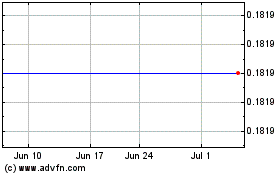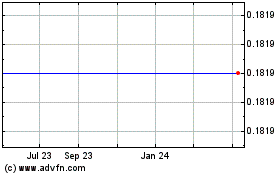By Suzanne Kapner
As department stores gear up for the holiday shopping frenzy
that unofficially gets under way this week, behind the scenes they
have been locked in a battle with some big-name suppliers over
rampant discounting.
More brands, including Michael Kors Holdings Ltd., Coach Inc.
and Levi Strauss & Co., want to be excluded from storewide
promotions such as "Friends & Family" sales. Their goal is to
gain control of their pricing, even if it means shrinking
sales.
"We've been watching this vicious cycle," said Uri Minkoff, the
chief executive of Rebecca Minkoff, the apparel and accessories
brand designed by his sister that pulled out of all such promotions
at Neiman Marcus, Saks Fifth Avenue and Bloomingdale's this fall.
"Discounting becomes a drug that is hard to get off, and it creates
this basis for the consumer to not trust regular prices."
Department stores say they want to curtail discounts, but worry
about turning off deal-hungry shoppers. J.C. Penney Co. and Macy's
Inc. riled up loyal customers in the past when they sought to
eliminate coupons.
Now, the issue is upending the delicate relationship between
brands and retailers. Many brands got their nationwide starts after
Macy's, Bloomingdale's or Nordstrom Inc. bet big on their labels.
But today, these brands have retail stores of their own.
Department-store executives say many of the brands demanding to be
excluded from their promotions offer similar discounts in their own
stores.
Diane Von Furstenberg is no longer sold at Bloomingdale's, and
Kate Spade is out at Saks Fifth Avenue after the parties were
unable to agree about promotions and other issues, people familiar
with the situation said.
Representatives from Diane Von Furstenberg, Kate Spade and Saks
declined to comment. A Bloomingdale's spokeswoman confirmed that
Diane Von Furstenberg clothes and accessories are no longer sold at
the retailer.
Labels with strong sales and customer pull have more power to
negotiate terms with retailers. But retailers also can swap those
brands with weaker ones that have less pricing power. Frugal
consumers have shown a willingness to jump from one brand to
another based on price.
"When you try to take these promotions away, people get upset,"
said Mortimer Singer, chief executive of retail consulting firm
Marvin Traub Associates. "They still want the discounts, and will
just find other brands."
Initially, Friends & Family sales were restricted to friends
and family members of store associates. But they have evolved to
include all customers. Unlike end-of-season sales that clear excess
merchandise, Friends & Family promotions typically offer 25%
off current season goods that would normally sell for full price.
While they vary by retailer, they normally occur several times a
year.
Certain categories such as cosmetics have always been excluded.
But in recent years, the number of individual brands opting out has
soared. When Macy's held its Friends & Family sale in April,
more than 30 brands were excluded, including Fitbit, Kate Spade, Le
Creuset and The North Face. During a similar sale in April 2011,
only Louis Vuitton, Tempur-Pedic, Coach and Tag Heuer were excluded
-- with the last two opting out of online purchases only.
John Idol, CEO of Michael Kors, in August blamed
department-store discounts for "difficulties in our own retail
channel, which is why you see our gross margins declining, because
we're really trying to meet certain pricing." As a result, Michael
Kors is removing itself from all department-store coupons and
Friends & Family sales, Mr. Idol said.
Coach is pulling out of 250 department stores and reducing the
amount of money it provides remaining locations to cover the cost
of promotions. "The key is to create consistency so there is no
confusion about why the price is different between one location and
another," Coach CEO Victor Luis said in an interview.
Both brands reported sharp declines in sales to North American
department stores in their latest quarters, part of a deliberate
attempt to reduce the amount of merchandise they sell to these
stores in the hope that scarcity will boost prices.
Department stores are also taking steps to reduce inventory. But
there are few signs that discounts are abating. The number of U.S.
receipts that included promotions increased 69% in the three months
to Nov. 15, compared with the same period a year ago, according to
retail analytics provider DynamicAction Inc., which analyzed more
than $8 billion in online transactions.
Macy's CEO Terry Lundgren learned how attached shoppers are to
discounts in 2007, when the chain tried to cut back on coupons.
"Customers stopped shopping, so we knew that was a bad idea," Mr.
Lundgren told The Wall Street Journal in 2013.
Penney lost more than $1 billion in sales in 2013 after prior
management tried to do away with discounts. "We are very committed
to being promotional," Penney's new CEO Marvin Ellison said last
year. "I think if we learned anything from the failed strategy it
is that this is a promotional space that we're in and we're going
to have to compete."
Department stores acknowledge they need to look at other
strategies beyond just lowering prices to lure shoppers. Some
chains are asking brands to create exclusive collections such as
Vera Wang accessories embellished with Swarovski crystals available
at Kohl's Corp. this holiday season.
"We are never going to compete on price alone," said Kevin
Mansell, the chain's chief executive.
Write to Suzanne Kapner at Suzanne.Kapner@wsj.com
(END) Dow Jones Newswires
November 22, 2016 11:14 ET (16:14 GMT)
Copyright (c) 2016 Dow Jones & Company, Inc.
J C Penney (NYSE:JCP)
Historical Stock Chart
From Mar 2024 to Apr 2024

J C Penney (NYSE:JCP)
Historical Stock Chart
From Apr 2023 to Apr 2024
